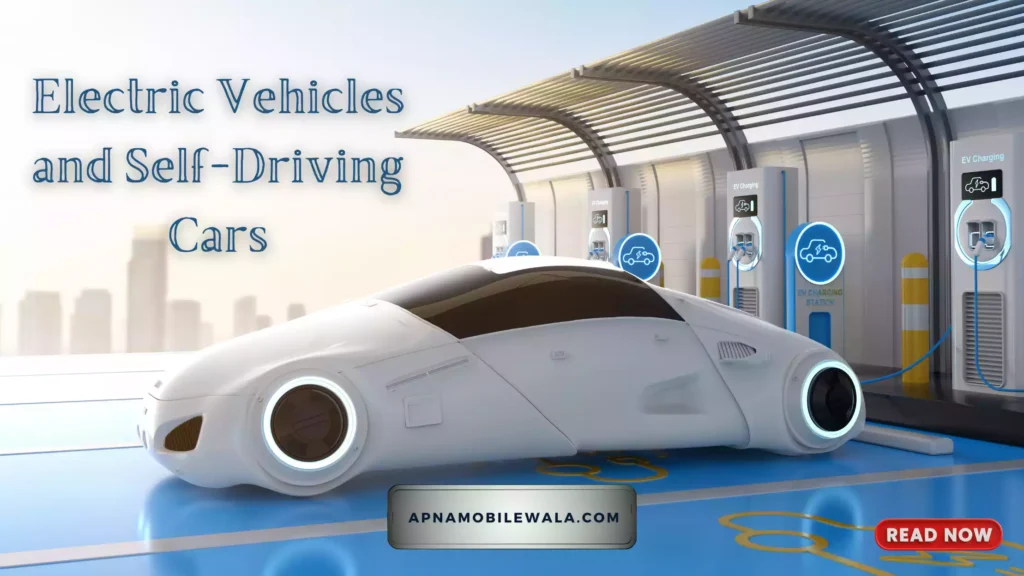Buckle Up for the Future: Electric Vehicles and Self-Driving Cars Take the Wheel
The way we travel is on the cusp of a dramatic transformation. Two revolutionary trends, electric vehicles (EVs) and self-driving cars (AVs), are poised to reshape our transportation landscape. Let’s delve into how these innovations will work together to create a cleaner, safer, and more convenient future for mobility.
Electric Vehicles: Powering a Sustainable Journey
EVs are already making waves, offering a compelling alternative to gasoline-powered cars. By harnessing electric power, EVs significantly reduce greenhouse gas emissions, combating climate change and improving air quality in our cities. This shift towards sustainable transportation is crucial for protecting our planet.
Beyond environmental benefits, EVs offer a delightful driving experience. Their electric motors provide smooth acceleration and quiet operation, making your daily commute a pleasure. Additionally, lower maintenance costs and increased energy efficiency translate to significant savings at the pump.
Self-Driving Cars: The Road to Autonomy
Self-driving cars, piloted by artificial intelligence (AI), hold immense potential to revolutionize transportation. Imagine a world where you can relax or work productively during your commute, letting the car handle the driving. AVs promise to enhance safety by eliminating human error, a major cause of accidents.
Furthermore, AVs can optimize traffic flow by communicating with each other and infrastructure, reducing congestion and travel times. This can significantly improve our commutes and make our cities more breathable.
A Powerful Combination: EVs and AVs Working in Tandem
The future of transportation lies at the intersection of EVs and AVs. When these two technologies converge, we can expect a transportation system that is clean, safe, and incredibly efficient. Imagine a fleet of self-driving electric vehicles, silently navigating city streets, reducing emissions and congestion.
This powerful combination can also improve accessibility for people who cannot drive themselves, providing them with greater independence and mobility.
Challenges on the Road Ahead
While the future looks bright, there are challenges to overcome. Battery technology for EVs needs to improve to provide longer ranges and shorter charging times. Additionally, the development and testing of self-driving cars require careful consideration of safety regulations and ethical implications.
The Road Ahead: A Brighter Future for Transportation
Despite the challenges, the momentum behind EVs and AVs is undeniable. With continued technological advancements and infrastructure improvements, these innovations have the potential to transform our transportation landscape for the better. As we buckle up for the future, get ready for a ride that is cleaner, safer, and more convenient than ever before.
Autonomous Electric Vehicle Companies
Autonomous electric vehicle companies are at the forefront of transportation innovation, developing self-driving cars powered by electricity. These companies are working to create a future where our roads are cleaner, safer, and more efficient. Here are some of the leading players in this exciting field:
- Waymo (US)

- Cruise (US)

- Mobileye (Israel)
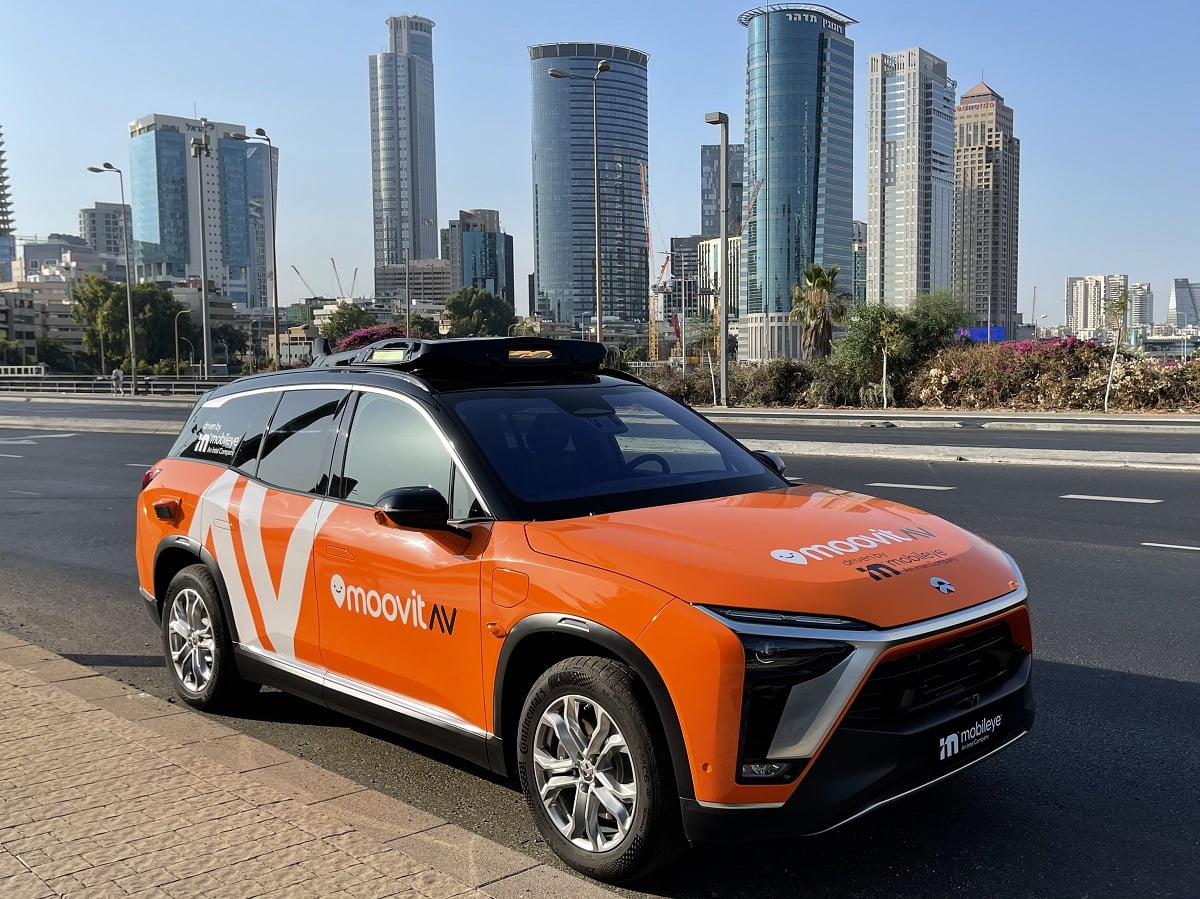
- Motional (US)
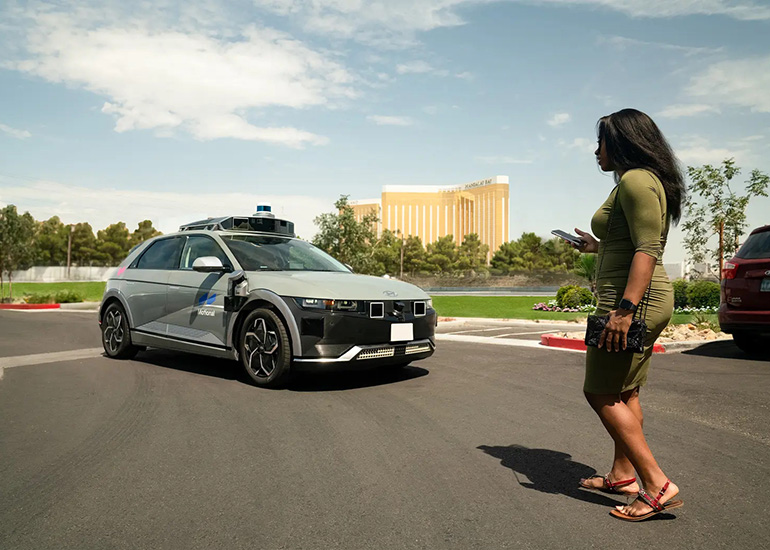
- Pony.ai (China)

These companies are taking different approaches to developing self-driving cars. Some, like Waymo and Cruise, are focusing on building their own autonomous vehicles from the ground up. Others, like Mobileye, are developing self-driving software that can be integrated into existing vehicles.
Despite their differences, all of these companies share a common goal: to make self-driving cars a reality. And as the technology continues to develop, we can expect to see more and more autonomous electric vehicles on the road in the years to come.
Here are some other notable companies working on autonomous electric vehicles:
- Aurora (US)
- Baidu (China)
- Zoox (US)
- Einride (Sweden)
- May Mobility (US)
Impact of Electric Vehicles on the Transportation System of India
The rise of electric vehicles (EVs) has the potential to significantly impact India’s transportation system, bringing both environmental and economic benefits. Here’s a breakdown of the potential effects:
Positive Impacts:
- Reduced Emissions: A major benefit of EVs is their ability to curb air pollution. Traditional vehicles are a major source of air pollution in Indian cities, and EVs produce zero tailpipe emissions. This can significantly improve air quality and public health.
- Lower Dependence on Fossil Fuels: India relies heavily on imported oil, making it vulnerable to price fluctuations. Increased adoption of EVs would lessen dependence on fossil fuels and enhance energy security.
- Economic Benefits: EVs have lower operating costs due to reduced maintenance and electricity being cheaper than gasoline in the long run. This can lead to savings for both individual consumers and commercial fleet operators.
- Improved Efficiency: EVs can potentially improve traffic flow in congested cities. Electric motors offer better acceleration and regenerative braking, which can contribute to smoother traffic movement.
Challenges and Considerations:
- Charging Infrastructure: Currently, India lacks a widespread network of charging stations, which can be a barrier to EV adoption. Government initiatives and private investments are needed to create a robust charging infrastructure.
- Battery Technology: Range anxiety, the fear of running out of power before reaching a charging station, is a concern for some potential EV buyers. Advancements in battery technology to improve range and reduce charging times are crucial.
- Grid Capacity: A large-scale shift to EVs will increase the demand for electricity. Upgrading the power grid to handle this increased demand is essential.
- Cost of EVs: Currently, EVs tend to be more expensive than gasoline-powered vehicles upfront. Government subsidies and falling battery costs are needed to make EVs more affordable for a wider range of consumers.
Overall, the impact of EVs on India’s transportation system is expected to be positive. By addressing the challenges and continuing technological advancements, EVs can play a major role in creating a cleaner, more efficient, and more sustainable transportation system for India.
Are Self-Driving Cars Electric or Gas
Self-driving cars, also known as autonomous vehicles (AVs), are primarily designed to run on electricity. Here’s why:
- Efficiency: Electric motors are simpler and more efficient than gasoline engines. This is crucial for AVs, which rely heavily on complex computer systems that require a lot of power.
- Quiet Operation: Electric vehicles are much quieter than gas-powered cars. This is a benefit for both passengers and pedestrians in a world filled with autonomous vehicles.
- Environmental Impact: Since self-driving cars are envisioned to be widely adopted, electric power offers a significant advantage in reducing greenhouse gas emissions and air pollution in cities.
- Integration with Technology: Electric vehicles have simpler drivetrains compared to gas-powered cars. This allows for easier integration of the advanced sensors and computing hardware needed for autonomous driving.
There may be some exceptions in the early stages of self-driving car development, where existing gasoline or hybrid vehicles are retrofitted with autonomous driving technology. However, the long-term trend points towards electric being the dominant fuel source for self-driving cars.
Self Driving Car Companies
The world of self-driving cars (autonomous vehicles or AVs) is a hotbed of innovation, with numerous companies vying to be at the forefront of this transformative technology. Here’s a list of some leading companies working on self-driving cars, categorized by their approach:
Established Automakers with AV Programs:
- General Motors (US): Through their subsidiary Cruise, GM is developing fully driverless cars for commercial use in urban environments.
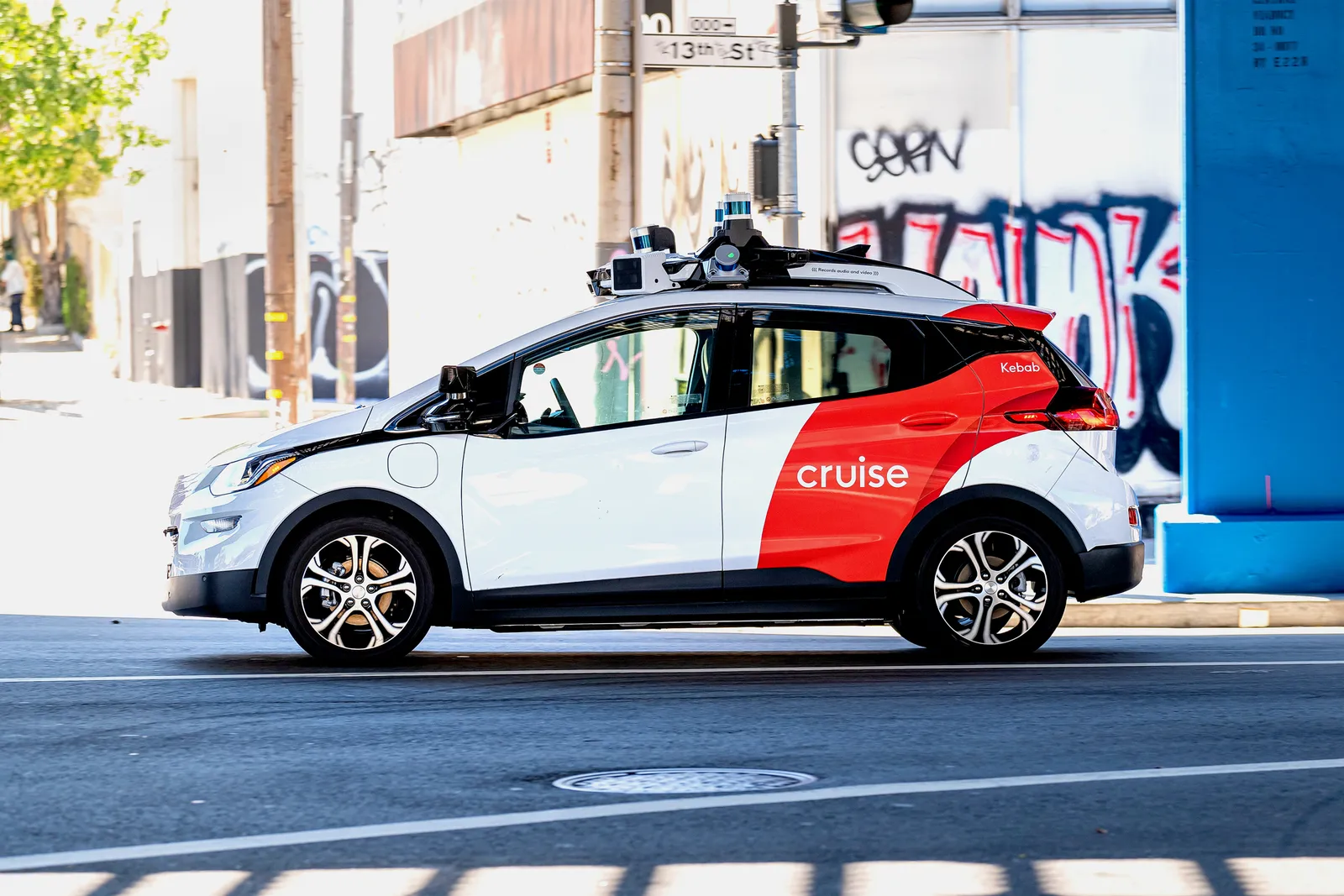
- Ford (US): Ford has partnered with Argo AI to develop self-driving technology, with a focus on commercial delivery vehicles.
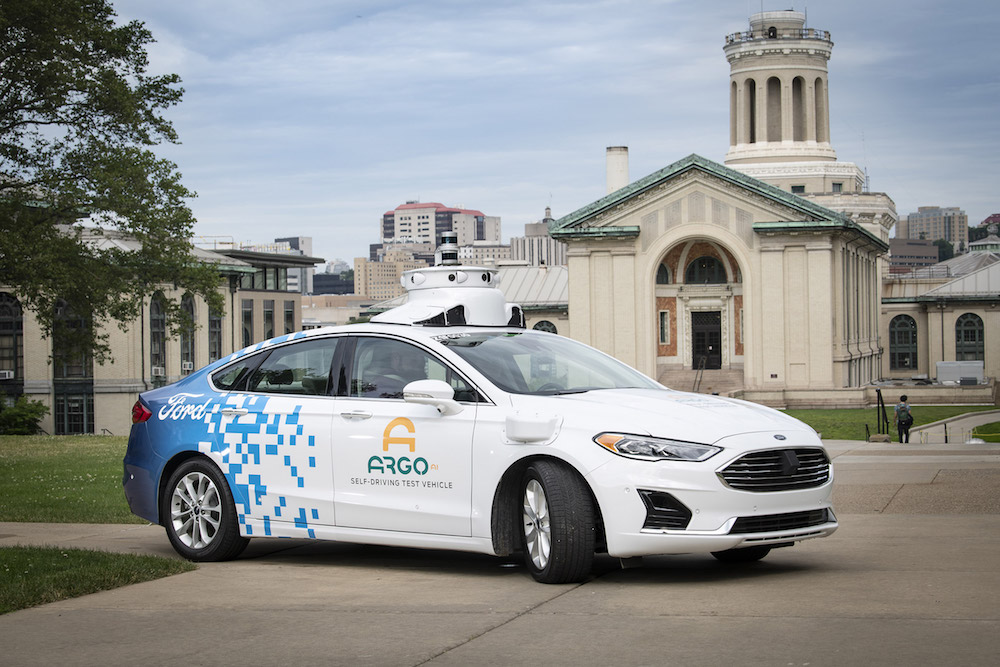
- Toyota (Japan): Toyota’s Woven Planet subsidiary is working on self-driving technology, with a focus on building “smart cities” of the future.
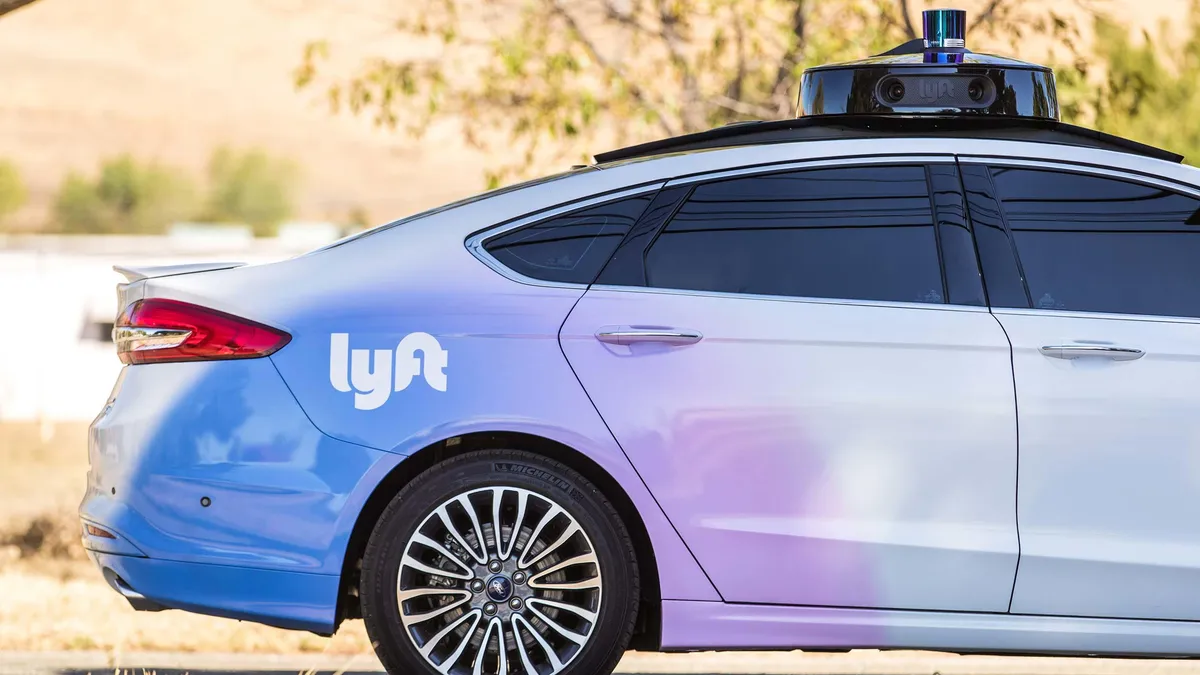
- Volkswagen Group (Germany): Volkswagen Group owns Audi, which has a self-driving car program focused on highway piloting features.

- Daimler (Germany): Daimler owns Mercedes-Benz, which offers some driver-assistance features with conditional automation on certain models.
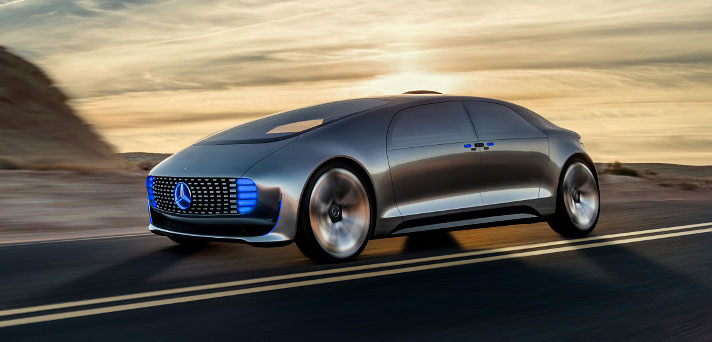
Tech Companies in the AV Race:
- Waymo (US): A subsidiary of Alphabet (Google), Waymo is considered a leader in self-driving car technology. They offer robotaxi services in limited areas and are continuously refining their technology.

- Tesla (US): Tesla uses a camera-based system called Autopilot for driver-assistance features, but it is not considered a fully self-driving system and requires driver supervision.

- Aurora (US): Aurora is developing self-driving software that can be integrated into existing vehicles. They are partnering with traditional automakers to bring their technology to market.
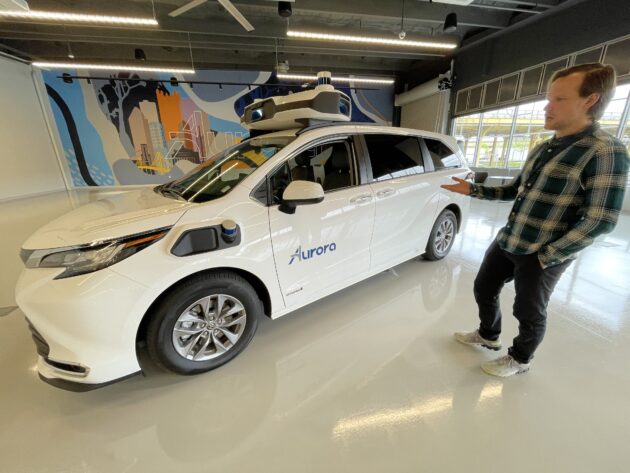
- Mobileye (Israel): Mobileye is another company developing self-driving software for integration into existing vehicles. They are a major supplier of driver-assistance technology to traditional automakers.
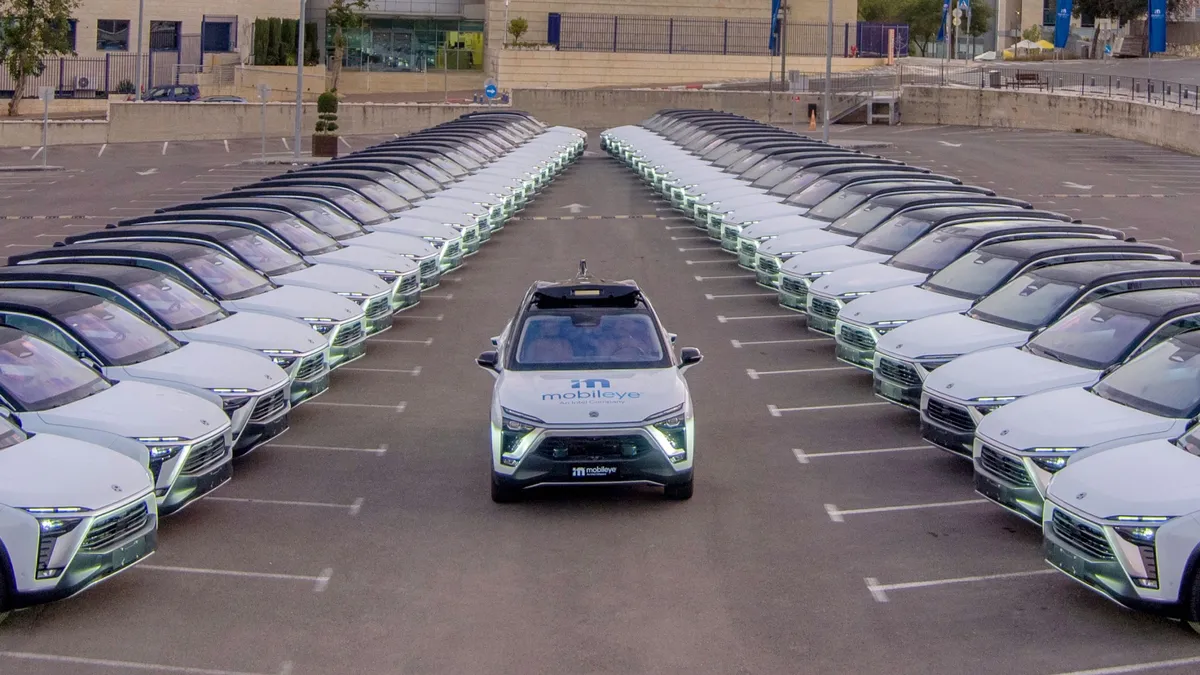
- Baidu (China): China’s internet giant Baidu is also developing self-driving car technology, with a focus on the Chinese market.
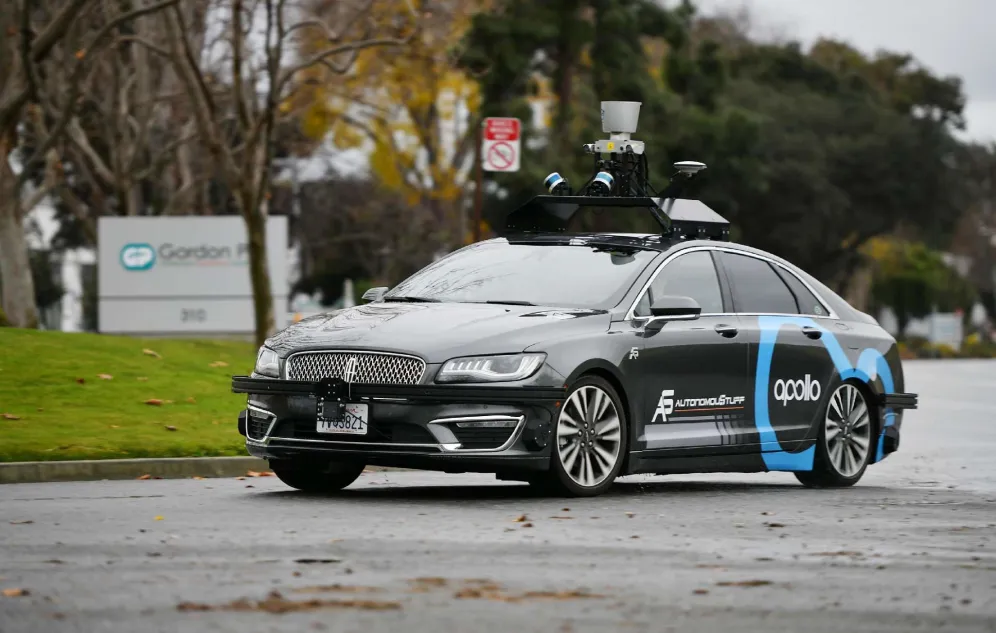
Other Notable Companies:
- Zoox (US): Zoox is developing a unique self-driving vehicle design with a bi-directional cabin for ride-hailing services.
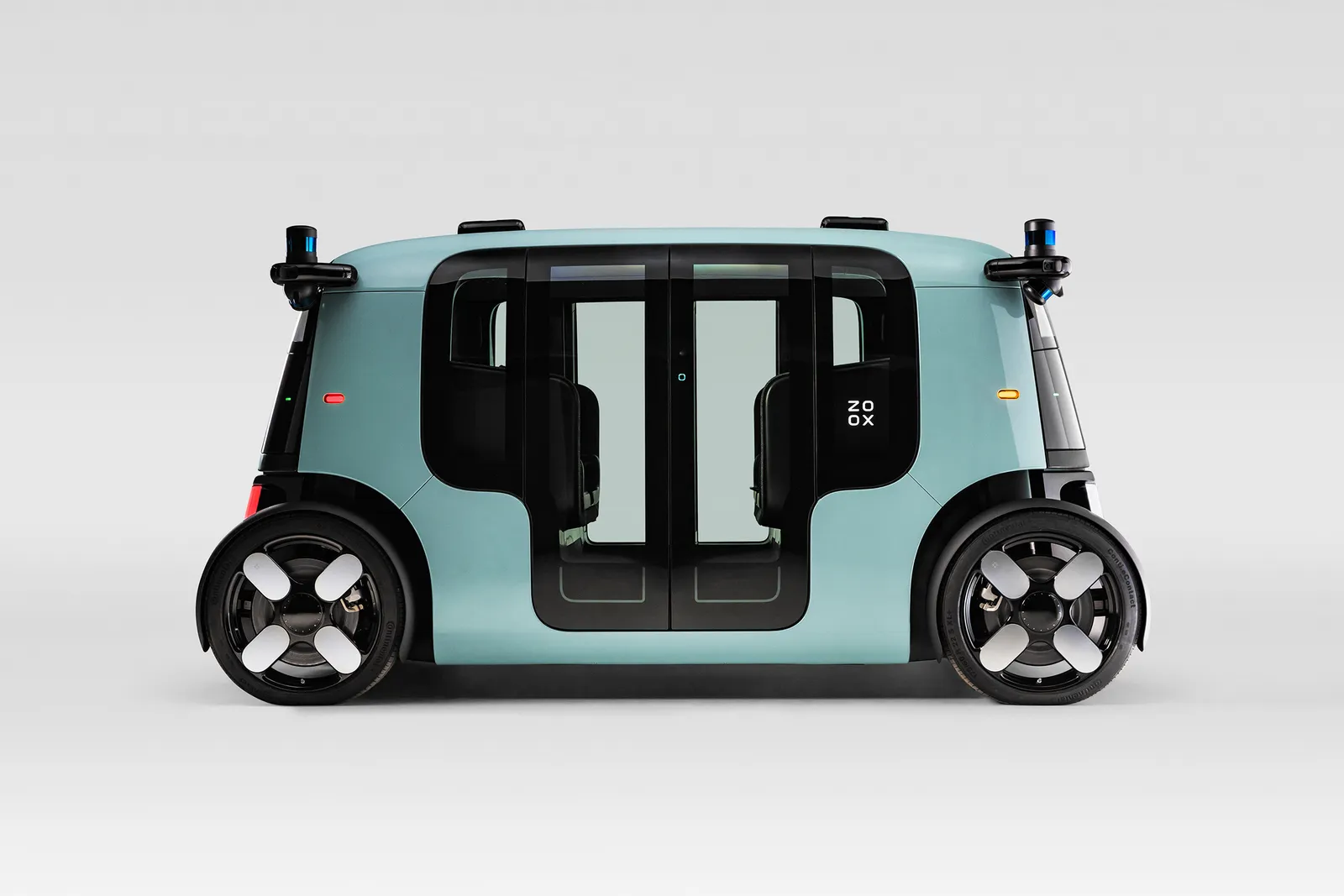
- Uber (US): Uber’s self-driving car development efforts have seen some setbacks, but they remain interested in the technology for future applications in their ride-hailing service.

- NuTonomy (Singapore): NuTonomy was acquired by Delphi in 2017, but their self-driving taxi service continues to operate in Singapore.
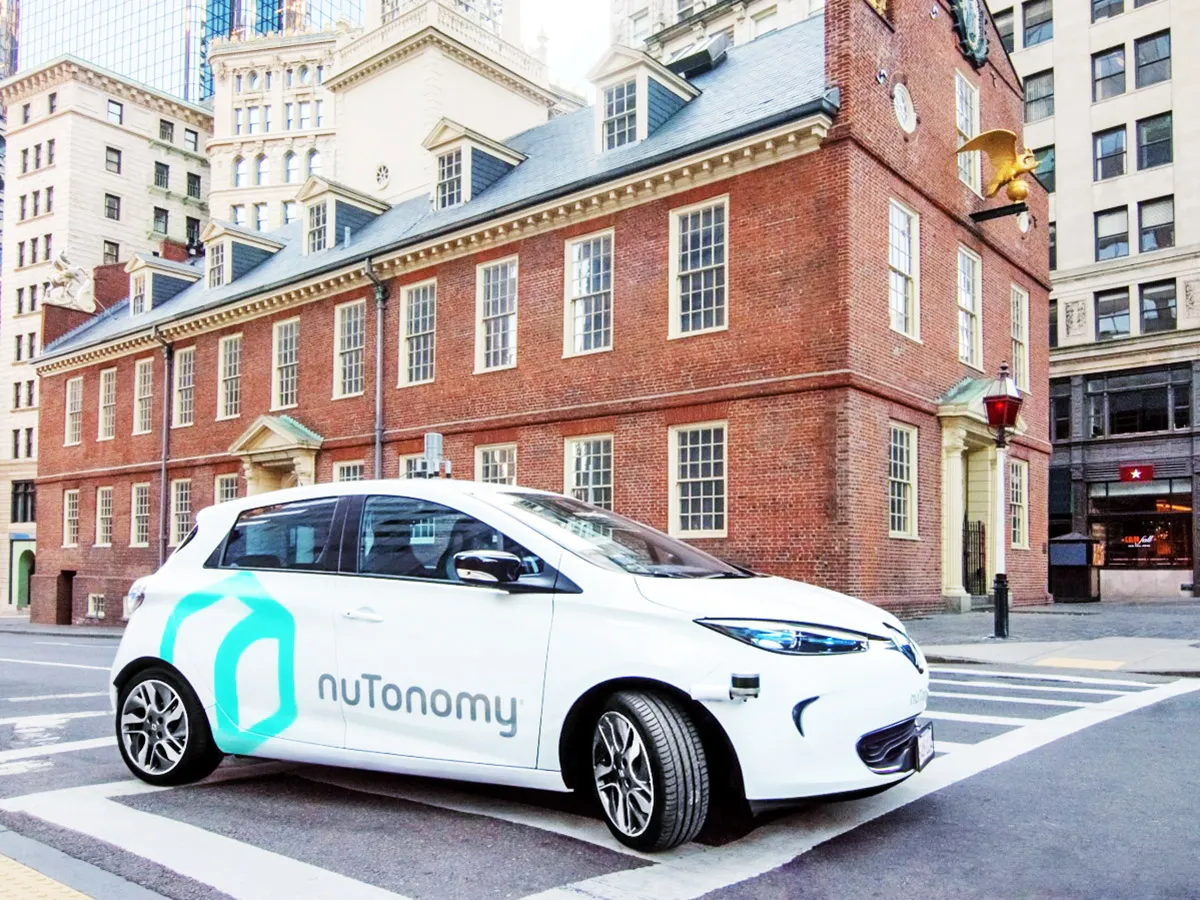
This list is not exhaustive, and the landscape of self-driving car companies is constantly evolving. Keep in mind that many companies are still in the testing and development phase, and it will likely be some time before fully self-driving cars are widely available for consumer purchase.
Self-Driving Cars in India
Self-driving cars are still in their early stages in India, facing unique challenges compared to other countries. Here’s a breakdown of the current situation:
Not Quite Ready for the Road Yet:
- Testing Phase: Currently, self-driving cars are only in the testing phase in India. Companies like Tata Motors, Mahindra & Mahindra, and startups like Minus Zero and RoshAi are developing the technology.
- Road Challenges: India’s chaotic traffic conditions, with unpredictable pedestrians, livestock, and uneven roads, pose a significant challenge for training self-driving algorithms.
Looking Ahead: Potential and Progress
- Ideal Testing Ground: Some experts believe India’s complex road environment could be a valuable testing ground for self-driving cars, requiring them to adapt to a wider range of situations.
- Government Support: The Indian government is increasingly supportive of technological advancements, which could benefit self-driving car development.
Electric Connection:
- EVs and AVs are seen as complementary technologies. Since EVs are quiet and efficient, they are a natural fit for self-driving cars.
Overall, self-driving cars in India are a work in progress with immense potential. Technological advancements, improved infrastructure, and government support are needed before we see them zipping down Indian streets.
self-driving Cars Price
You’re right, there’s no fixed price tag on self-driving cars yet for a couple of reasons:
- Not Commercially Available: Self-driving cars, also known as autonomous vehicles (AVs), are still under development and haven’t reached the stage of being sold to individual consumers. They’re currently undergoing testing in controlled environments.
- Uncertain Production Costs: Since they’re not mass-produced, calculating the exact cost of building them is difficult. This directly affects the final price for consumers.
- Tech Variations: Different companies use varying technologies in their self-driving cars, which can impact the overall cost.
However, we can explore some factors that will likely influence the price of self-driving cars when they do become commercially available:
- Advanced Tech: The complex sensor suite, powerful computers, and sophisticated software needed for self-driving functionality will likely make them significantly more expensive than traditional cars initially.
- Economies of Scale: As the technology matures and production scales up, the cost of these components is expected to decrease, bringing down the overall vehicle price.
Here’s a breakdown of potential scenarios:
- High Initial Cost: Experts predict a hefty price tag in the early stages, potentially exceeding several times the cost of a high-end luxury car.
- Subscription or Service Model: Consumer access might initially be through subscription services or pay-per-use models for robotaxi services or self-driving car rentals, rather than outright purchase.
Instead of a single price, we might see a range depending on the specific technology, features, and the chosen access model (ownership vs subscription).
Here are some resources to stay updated on the development of self-driving cars and their potential pricing:
- Follow news from leading self-driving car companies like Waymo, Cruise, Mobileye, etc.
- Keep an eye on industry publications and research reports that discuss the future of autonomous vehicles.
As self-driving car technology advances and the commercialization landscape becomes clearer, we’ll get a better picture of the price range for consumers.
Driverless Cars in India: A Balancing Act of Advantages and Disadvantages
Driverless cars, also known as autonomous vehicles (AVs), hold immense potential to revolutionize transportation in India. However, this technology is still in its early stages, and India faces unique challenges in its implementation. Let’s delve into both the advantages and disadvantages of driverless cars in India:
Advantages:
- Enhanced Safety: Human error is a major cause of road accidents in India. Driverless cars, with their advanced sensors and software, could significantly reduce accidents by eliminating drunk driving, fatigue, and distracted driving.
- Improved Traffic Flow: Driverless cars can communicate with each other and infrastructure, optimizing traffic flow and reducing congestion. This could lead to shorter commutes and less frustration on Indian roads.
- Increased Accessibility: Driverless cars can offer greater independence and mobility for people who cannot drive themselves, such as the elderly, visually impaired, or those with physical limitations.
- Reduced Emissions: Electric driverless cars can significantly contribute to cleaner air in Indian cities by eliminating tailpipe emissions from gasoline-powered vehicles.
Disadvantages:
- High Cost: The technology behind driverless cars is complex, making them expensive to develop and manufacture. Affordability might be a major hurdle for widespread adoption in India.
- Infrastructure Challenges: India’s complex road network, with unpredictable traffic patterns, pedestrians, and livestock, poses a significant challenge for training self-driving algorithms. Upgrading infrastructure might be necessary.
- Job Displacement: The rise of driverless cars could lead to job losses for taxi drivers, truck drivers, and other transportation professionals. This requires careful planning for retraining and reskilling initiatives.
- Ethical Concerns: The responsibility for accidents involving driverless cars remains a complex issue. Additionally, ethical dilemmas around programming decisions in critical situations need to be addressed.
The Road Ahead
The future of driverless cars in India is promising, but challenges need to be overcome. Collaboration between government, technology companies, and research institutions is crucial to develop safe, affordable, and efficient driverless car solutions that are tailored to India’s specific needs.
Here are some additional points to consider:
- Phased Implementation: Driverless car adoption might start with controlled environments like highways or specific routes before fully integrating them into city traffic.
- Focus on Public Transportation: Integrating driverless technology into public transportation systems could be a cost-effective way to improve accessibility and reduce congestion.
- Job Market Transformation: The rise of driverless cars might create new job opportunities in areas like maintenance, software development, and oversight of these vehicles.
Overall, driverless cars have the potential to revolutionize transportation in India. By carefully considering the advantages and disadvantages, and by working towards solutions to the challenges, India can pave the way for a safer, cleaner, and more efficient transportation future.
Future of Electric Vehicle
The future of electric vehicles (EVs) is bright, with several exciting trends shaping their trajectory:
Technological Advancements:
- Battery Breakthroughs: Battery technology is a key area of focus. Advancements in lithium-ion battery technology are expected to deliver longer ranges, shorter charging times, and potentially lower costs.
- Solid-State Batteries: Solid-state batteries hold immense promise for the future. They offer higher energy density, faster charging times, and improved safety compared to traditional lithium-ion batteries.
- Autonomous Integration: The future of EVs is likely intertwined with autonomous vehicles (AVs). Electric powertrains are a natural fit for self-driving cars due to their quiet operation and efficiency.
Market Growth and Adoption:
- Wider Range of Options: Expect a wider variety of EV models to cater to different needs and budgets. From sedans and SUVs to trucks and even motorbikes, the EV market will offer more choices for consumers.
- Falling Prices: As battery costs decrease and EV production scales up, the upfront cost of EVs is expected to reach parity with gasoline-powered vehicles in the coming years.
- Government Support: Many governments are implementing policies and incentives to encourage EV adoption. This includes tax breaks, charging infrastructure initiatives, and restrictions on gasoline-powered vehicles.
Environmental Impact:
- Reduced Emissions: The widespread adoption of EVs will lead to significant reductions in greenhouse gas emissions and air pollution in cities, contributing to a cleaner environment.
- Sustainable Practices: The rise of EVs will create a demand for cleaner energy sources. This could incentivize investments in renewable energy infrastructure like solar and wind power.
- Circular Economy: Developing sustainable practices for battery production, recycling, and disposal will be crucial for the long-term environmental impact of EVs.
Challenges and Considerations:
- Charging Infrastructure: Expanding the network of charging stations, especially fast-charging stations, is essential to address range anxiety and encourage wider EV adoption.
- Energy Grid Capacity: The increasing demand for electricity from EVs will require upgrades to the power grid to ensure sufficient and reliable power supply.
- Raw Material Sourcing: The ethical and environmental implications of mining the raw materials needed for battery production need to be addressed.
Overall, the future of electric vehicles is one of continuous progress and increasing integration into our daily lives. With advancements in technology, falling costs, and government support, EVs are poised to become the dominant mode of transportation in a cleaner and more sustainable future.
Electric Vehicle Advantages
Electric vehicles (EVs) offer a compelling alternative to gasoline-powered cars, bringing environmental and economic benefits. Here’s a breakdown of the key advantages of EVs:
Environmental Benefits:
- Reduced Emissions: A major advantage of EVs is their ability to curb air pollution. Unlike gasoline-powered vehicles that emit harmful pollutants, EVs produce zero tailpipe emissions. This can significantly improve air quality, especially in congested cities.
- Combating Climate Change: Transportation is a major contributor to greenhouse gas emissions. Widespread adoption of EVs can help reduce these emissions and mitigate the effects of climate change.
- Sustainable Energy Source: When charged using renewable energy sources like solar or wind power, EVs offer a truly sustainable transportation option.
Economic Benefits:
- Lower Running Costs: EVs are generally cheaper to operate than gasoline-powered vehicles. Electricity is often less expensive than gasoline, and EVs require less maintenance due to fewer moving parts.
- Energy Independence: Reduced reliance on imported oil can improve a country’s energy security and potentially lower fuel costs in the long run.
- Government Incentives: Many governments offer tax breaks, rebates, and other incentives to encourage EV adoption, making them more affordable for consumers.
Additional Advantages:
- Quieter Operation: Electric motors are much quieter than gasoline engines, creating a more peaceful driving experience and reducing noise pollution in cities.
- Improved Performance: EVs can offer smoother acceleration due to the instant torque provided by electric motors.
- Technological Advancements: Battery technology is constantly improving, offering greater range and shorter charging times, addressing a major concern for potential EV buyers.
Overall, electric vehicles offer a cleaner, more economical, and technologically advanced driving experience. As infrastructure and technology continue to develop, EVs are poised to play a major role in the future of transportation.
Electric Vehicle Price
The price of electric vehicles (EVs) varies depending on several factors, but generally they are more expensive upfront compared to gasoline-powered vehicles. However, there are ongoing efforts to bring down the cost and make EVs more affordable for a wider range of consumers. Here’s a breakdown of the current situation and future trends:
Current EV Prices:
- Higher Upfront Cost: EVs typically cost more than gasoline-powered vehicles due to the higher cost of battery packs and the technology involved. Prices can range anywhere from roughly ₹ 6 lakh for a small electric car in India to well over ₹ 1 crore for luxury electric vehicles.
- Factors Affecting Price: The size, range, features, and brand of the EV all play a role in determining its price. Additionally, government incentives in some regions can bring down the effective cost for consumers.
Future Price Trends:
- Battery Cost Reductions: A major factor influencing EV prices is battery cost. As battery technology advances and production scales up, battery costs are expected to decrease significantly. This will translate to lower EV prices in the coming years.
- Economies of Scale: Increased EV production will lead to economies of scale, further driving down manufacturing costs and making EVs more affordable.
- Government Incentives: Many governments are offering tax breaks, rebates, and other incentives to encourage EV adoption. These incentives can significantly reduce the effective price of an EV for consumers.
Overall, while EVs currently carry a higher upfront cost, the future looks promising. Here are some reasons to be optimistic about EV affordability:
- Falling Battery Costs: Battery costs are projected to decline substantially in the coming years, the single biggest factor influencing EV prices.
- Government Support: Government incentives like tax breaks and subsidies can significantly reduce the effective price of EVs.
- Used EV Market: As the EV market matures, a robust used EV market will emerge, offering more affordable options for budget-conscious buyers.
Here are some resources to stay updated on EV prices:
- Track pricing information on websites of major EV manufacturers.
- Follow news articles and industry reports on EV market trends and pricing.
- Check government websites for available EV incentives in your region.
By staying informed, you can make an educated decision about when to consider purchasing an electric vehicle at a price point that works for you.

